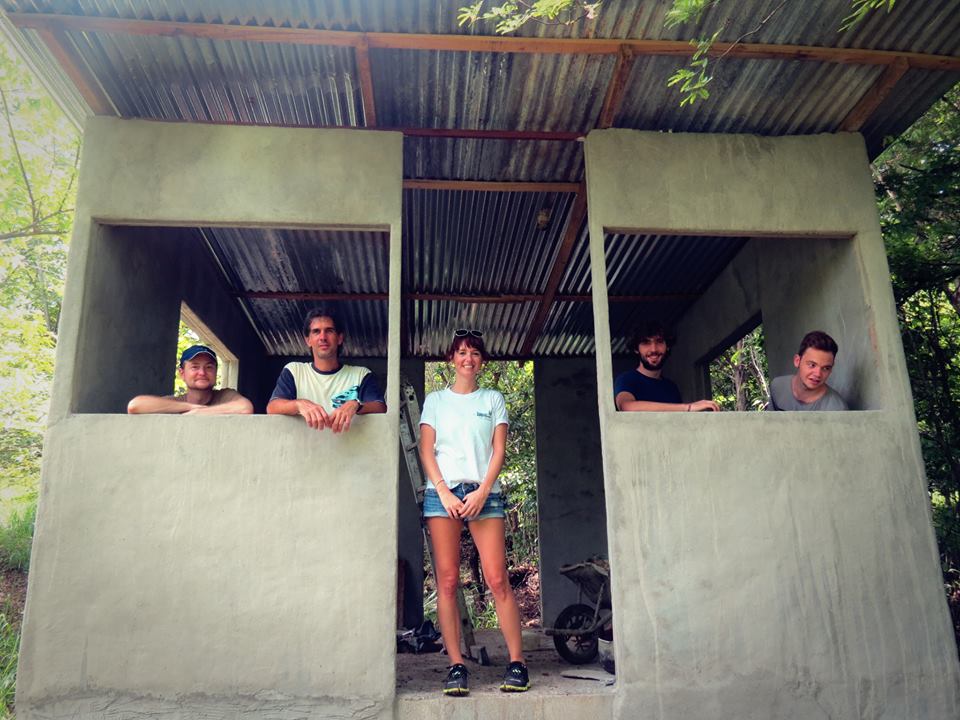 Costa Rica is known for its biodiversity. In fact, it is widely considered to have the highest density of biodiversity of any country on the planet. With a population exceeding 4.7 million inhabitants, maintaining a dedication to biodiversity can sometimes appear to be at odds with the desires of a growing, modernized society. Luckily, Costa Rica has become a haven for citizens who want to bridge the growing demands of the populace with the functional needs of the planet.
Costa Rica is known for its biodiversity. In fact, it is widely considered to have the highest density of biodiversity of any country on the planet. With a population exceeding 4.7 million inhabitants, maintaining a dedication to biodiversity can sometimes appear to be at odds with the desires of a growing, modernized society. Luckily, Costa Rica has become a haven for citizens who want to bridge the growing demands of the populace with the functional needs of the planet.
One Costa Rican visionary, Richard Blasoni, has dedicated his life’s work to the aforementioned ideals of functionality through sustainability. Through hard work and dedication Richard has built a sprawling paradise situated over 52 hectares of land. Apame Eco-Park, meaning “It’s Green” in the native Chorotega language, is becoming a breeding ground for sustainable farming, aquaponics, and alternative energy.
 With an understanding of the link between plant-based nutrition and health, Richard has made it a point to build an edible forest. With a wide variety of native fruit trees, chia, sorrel, and other vegetables, Apame Eco-Park is a nascent full-fledged food forest. A hope is to provide a source of fresh, organically produced, plant-based foods to local community businesses. In addition to being an oasis of nutritious foods, Apame Eco-Park is also a haven for wildlife. In many cases, animals that have been injured outside the park have been given care and refuge there.
With an understanding of the link between plant-based nutrition and health, Richard has made it a point to build an edible forest. With a wide variety of native fruit trees, chia, sorrel, and other vegetables, Apame Eco-Park is a nascent full-fledged food forest. A hope is to provide a source of fresh, organically produced, plant-based foods to local community businesses. In addition to being an oasis of nutritious foods, Apame Eco-Park is also a haven for wildlife. In many cases, animals that have been injured outside the park have been given care and refuge there.
 In a time where the consumption of fish is neither sustainable nor healthy, considering the amount of industrial pollutants in the ocean, another strategy is needed. Offering an alternative to standard industrial fishing practices, Apame also boasts a very large aquaponics facility. Tilapia is raised there with their biological output feeding large beds of watercress and other native plants. Apame Eco-Park even produces its own line of pesto sauce made from the watercress they grow.
In a time where the consumption of fish is neither sustainable nor healthy, considering the amount of industrial pollutants in the ocean, another strategy is needed. Offering an alternative to standard industrial fishing practices, Apame also boasts a very large aquaponics facility. Tilapia is raised there with their biological output feeding large beds of watercress and other native plants. Apame Eco-Park even produces its own line of pesto sauce made from the watercress they grow.
Addressing the current energy crisis, Apame-Eco Park is brainstorming ideas for alternative energy. Volunteer cabins are being built from recycled plastic bottles and visions of a go-cart park powered by alternative energy are abound. In all, Apame Eco-Park is a center for education on the most pressing issues of our time, preservation of the planet in which we live. One day, it will become an epicenter for agriculture/health education, voluntourism, energy independence and sustainable recreation.
Markus.
